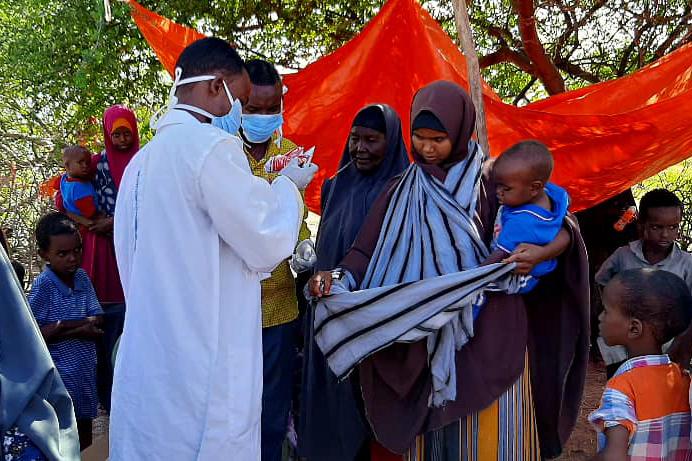“Jubaland is facing a deadly cascade of emergencies,” says Mariano Lugli, MSF’s programme manager for Somalia. “An erratic cycle of droughts, floods and disease outbreaks is taking a toll on people who barely have time to recover from one crisis before another hits. The worst part is that this pattern is set to continue and get worse over time.”
The current humanitarian response is woefully inadequate, with too few emergency responders in the region. Lifesaving assistance is limited due to a lack of funding and widespread insecurity, leaving tens of thousands of people in a desperate situation.
Much of Jubaland has been suffering from acute water and food scarcity as a result of a prolonged drought. Although Jubaland has received some rainfall in early May, weather conditions are very erratic, and people fear food shortages will not end anytime soon. Recent warning of imminent flooding has people further on the edge.
“More people are moving in search of food and water, even as the risk of COVID-19 remains and a measles outbreak remains unabated in Dhobley and Kismayu,” says Mohamed Ahmed, MSF’s project coordinator in Jubaland. “Pastoralist communities are also affected as they have lost livestock that have reportedly died of thirst due to water shortages.”
In the Gedo and Lower Juba regions, MSF has already mounted three emergency responses this year, treating children for severe acute malnutrition, vaccinating 4,355 children for measles and addressing critical water shortages by providing water to 12 villages in Afmadow and El Wak districts. From January to April this year, more than 3,500 children were enrolled in MSF-supported nutrition programmes (MSF data covers only facilities supported by MSF and may therefore provide only a partial picture of the extent of malnutrition in Jubaland.)
MSF teams in Somalia, and especially in the south of the country, are seeing a pattern of one emergency leading to another – a trend which is accelerating. In October 2019, MSF teams responded to severe flooding in Beledweyn district. The waters had barely receded when cholera broke out in January 2020 – a result of contamination caused by the flooding. And just a few months later, in May, flash floods struck Beledweyne town again, causing widespread displacement and prompting MSF to launch yet another emergency response.
